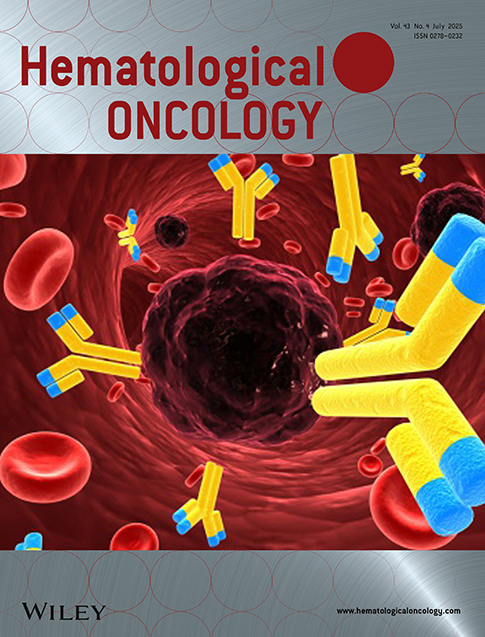Treatment of early chronic lymphocytic leukemia: Intermittent chlorambucil versus observation
Abstract
The effect of early therapy on the course of chronic lymphocytic leukemia (CLL) has not been established. Fifty-nine patients with indolent Rai stage I and II CLL were randomized to receive intermittent chlorambucil once a month or to receive no treatment. The two groups were comparable in entry characteristics. At 5 years from randomization there was no significant difference in survival between the two groups although the proportion of patients exhibiting active disease 5 years after randomization is 70 per cent in the untreated group and 55 per cent in the treated group. In this study, early treatment of CLL with intermittent chlorambucil did not result in a survival advantage for patients with indolent stage I and II CLL.




